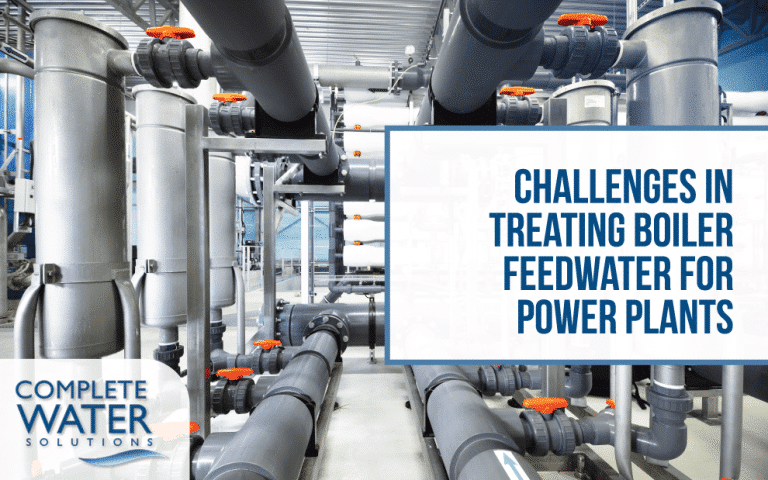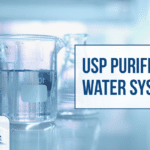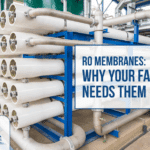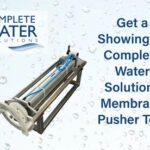Challenges in Treating Boiler Feedwater for Power Plants
For the non-scientific mind, chemical processes and the handling of large scale technological devices can be challenging to comprehend, which is why here at Complete Water Solutions, we want to help you understand why we offer our services and how it works. In this blog, we will discuss what boiler feedwater is, why it is important to maintain, and some of the challenges that come along with trying to care for the system.
What is Boiler Feedwater & Why Does it Need to Be Treated?
So, what is boiler feedwater? Boiler feedwater is the water that is used to enable boiler operations. It is often a blend of condensed steam and groundwater that are heated together then sent through the boiler, helping to provide it with the energy it needs to make the boiler function. Most systems use water to create this energy because it has a higher heat capacity than most other substances, which means it takes a higher temperature for water to get too hot when compared to other potential liquids. This means that the water can be re-circulated throughout the boiler system for a longer period of time before it needs replacement. Water is the best choice for this operation because of its longevity of use, but maintaining the quality of the feedwater is essential.
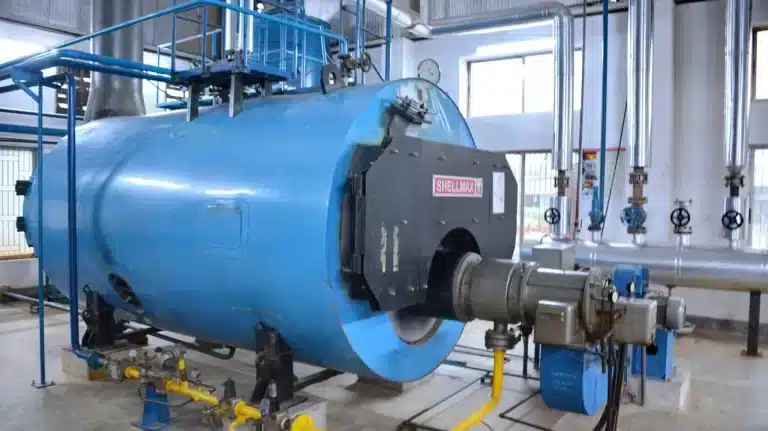
Why is that? Well, the quality of the water significantly affects the efficiency and lifespan of the entire system it functions within. Because groundwater is typically used and it is affected by the chemicals in the ground around it, the water used in boilers is never truly pure or free of chemical mixtures. Water impurities, such as being too high or low in alkalinity, causes the steam produced to be inferior and thus the boiler becomes more sensitive to impurities. These systems are so sensitive that they are actually more affected by impure water than the human stomach is! Therefore, filtration and treatment processes are essential for boiler feedwater.
What are the Challenges in Treating Boiler Feedwater?
Unfortunately, this is easier said than done and needs to be handled by experts, like the Complete Water Solutions team of professionals, because there are certain challenges that come with trying to maintain these systems. Below are some of the challenges that we are well aware of and equipped to handle.
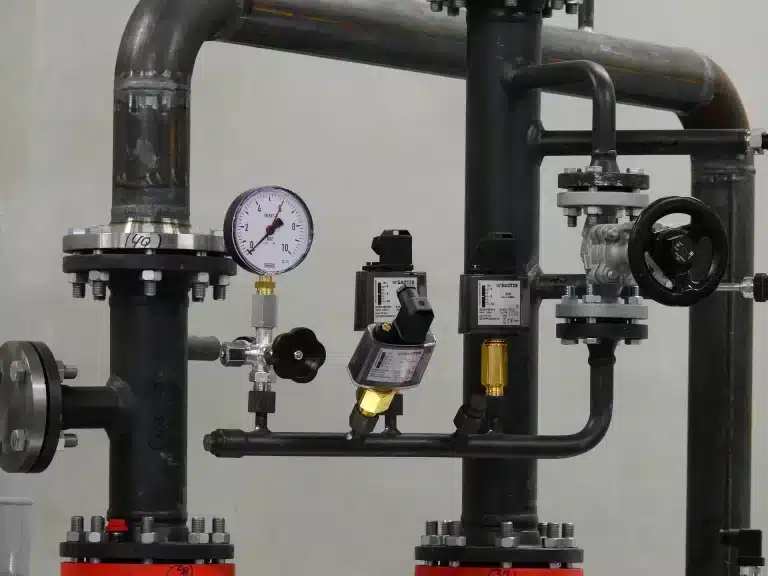
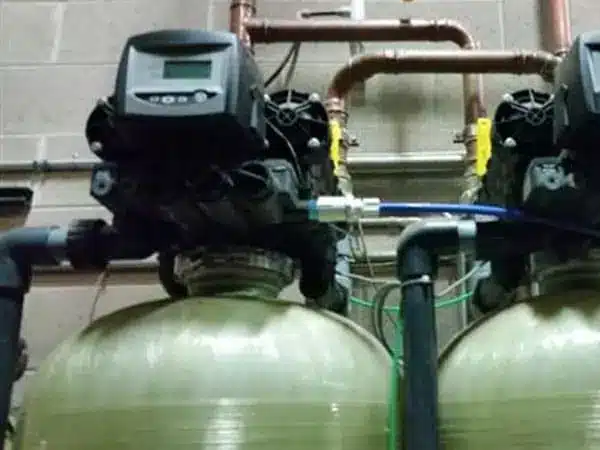
- Impurities in Water: As we mentioned, natural water sources have various contaminants, including dissolved air, oxygen, carbon dioxide, and potentially even some troublesome gasses like hydrogen sulfide and methane. It is difficult to filter water in such a way that entirely removes these contaminants and makes the water pure. Fortunately, most power plants do have a first line of defense as they have a filtration system that can handle suspended solids.
- Dealing with Different Types of Deposits: There are multiple types of deposits in the water that can also negatively affect the system’s ability to function. Scale deposits, which include phosphate, carbonate, sulfate, silica, and iron, are particularly challenging to deal with. It is important to identify their presence and work towards removing them because they can lead to tube failure, reduced heat transfer efficiency, and increased maintenance costs for the system.
- Concerns About Corrosion: When the water impurities exist for long periods of time, they can corrode the piping system that makes the power plant work. Water qualities, such as high or low pH levels, exposure to oxygen, and varying temperatures can increase the corrosion. This also can lead to tube failure, reduced machine efficiency, and increases fuel consumption, which is not an added cost you want to deal with.
- Boiler Water Carryover: Boiler water carryover, which is when the steam that’s produced by the system gets contaminated by solids in the boiler water, can present challenges. This happens when the water foams, primes, or there is damaged steam-separating equipment. This is also problematic because it can further cause corrosion or even the machine to overheat.
Solutions for Effective Boiler Feedwater Treatment
Fortunately, Complete Water Solutions is the expert solution to dealing with all of these challenges and keeping your power plant fully functioning and in great condition. Here are just some of the ways we work to accomplish this:
- External Treatment: This method of treatment is proactive; it works to remove the water impurities before they ever reach the boiler. We use chemical processes such as deaeration, demineralization, and filtration, which all play a crucial role in the power plant. If there are suspended solids, there are cartridge filters that can properly filter them out and keep your power plant healthy.
- Internal Treatment: If there is already impure water being used in the system, then we can take a reactive approach to handling it. Internal treatment prevents the water from dissolving the boiler and keeps the effects of the impurities to a minimum. If there is oxygen damaging the system, we can insert chemical additives, like phosphate-dependent chemicals and sulfite-dependent chemicals. We will also regularly blowdown and deaerate in order to ensure the treatment is the most effective it can be.
- Scale and Deposit Prevention: There is a wide variety of deposits that may affect your system, but we fully understand the different characteristics of phosphate, carbonate, sulfate, silica, and iron, so we can intentionally target the problem in your system. We will carefully monitor and apply suitable chemicals to control these impurities.
- Corrosion Prevention: Preventing the corrosion of your system involves maintaining the alkaline conditions, keeping the internal surfaces clean, and using a personalized chemical treatment program. Filtration through the removal of dissolved oxygen and careful pH controls are essential for preventing corrosion-related issues.
Complete Water Solutions can Help with Boiler Feedwater Treatment!
As you can see, treating and maintaining the boiler feedwater in your power plant is important to ensuring your business can function at the top of its game. You should never be worried about having to deal with any of these stressful issues. That’s why you should trust the team at Complete Water Solutions to help out with your boiler feedwater. We have years of experience working on and successfully fixing all of the different challenges that affect your system.
If you’re in need of reliable experts, get in touch with our team to schedule a consultation and an appointment.
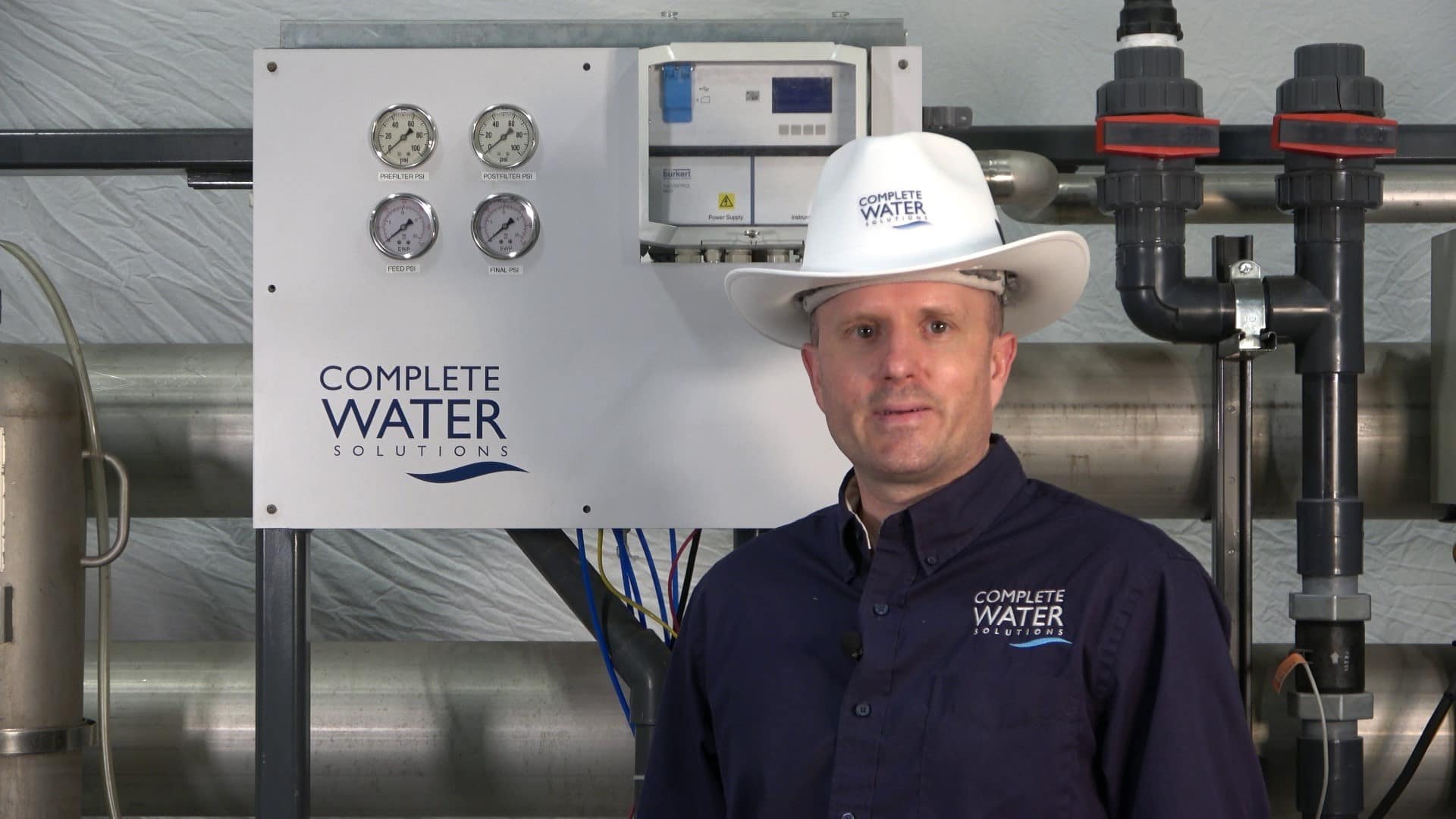
With over 30 years of hands-on experience in the water treatment industry, Nathan Olszak is a trusted water treatment expert. He specializes in designing, engineering, and servicing water treatment systems. As the owner of Complete Water Solutions, Osmonics, and Membrane Cleaning Pro, Nathan has built a reputation for delivering customized water treatment solutions that enhance efficiency, reliability, and water quality across various industries, including the medical, commercial, and manufacturing sectors.
Nathan’s journey in water treatment began as a service technician. He gained in-depth knowledge by working with all major brands of equipment, including Veolia, Suez, Bruner, Culligan, Pentair, Aquamatic, Osmonics, GE Water, Marlo, Lakeside, Fleck, Autotrol, US Filter, ION Pure, Siemens, Evoqua, and many others. This hands-on expertise, combined with his technical certifications, has made him a leader in water system engineering and water management.
Credentials & Expertise
- Certifications: David H. Paul Reverse Osmosis Certification, PLC Programming
- License: Power Plant Operating Engineer 3rd Class
- Specialties:
- Design & engineering of water treatment systems and advanced water systems
- Custom water filtration systems and solutions
- Installation, automation, and repair of water treatment systems
- Expertise in Reverse Osmosis (RO), Deionization, Water Softening, Carbon Filtration, Iron Filtration, UV Treatment, Ultrafiltration (UF), Process Filtration, CEDI/EDI, and more
- Specialized knowledge in Boiler Feed Water, Tower Makeup Water, and drinking water production for industries such as bottling, pharmaceuticals, and food processing
- Project management and reclaiming of water system waste for other uses
- Evaluation of raw water sources and potential contamination risks
- Industrial water treatment strategies to prevent corrosion and optimize system performance
- Boiler water treatment to enhance energy efficiency and system longevity
Nathan’s commitment to excellence extends beyond equipment sales and service. He works closely with clients to develop tailored water treatment services that optimize performance and meet their operations’ unique demands. His expertise covers methods that mitigate water impurities, ensure fresh water accessibility, and maintain regulatory compliance. It also includes the design of high-efficiency reverse osmosis systems for industrial use.
Nathan focuses on the latest technology in water conditioning, water softeners, filters, and pumps to improve maintenance and efficiency. His experience in laboratory testing and biofilm control ensures the highest industry standards in water treatment processes and water management.
Additionally, his deep understanding of infrastructure and water data analysis provides long-term, cost-effective solutions that promote health and safety. His expertise ensures that businesses receive top-tier, quality water treatment solutions.
For insights into the latest industry trends, innovations, and best practices, explore the Complete Water Solutions Blog, where Nathan shares valuable information on water filtration systems, sustainability, and water solutions engineering.
Give Us A Call (855) 787-4200 or Email info@complete-water.com


